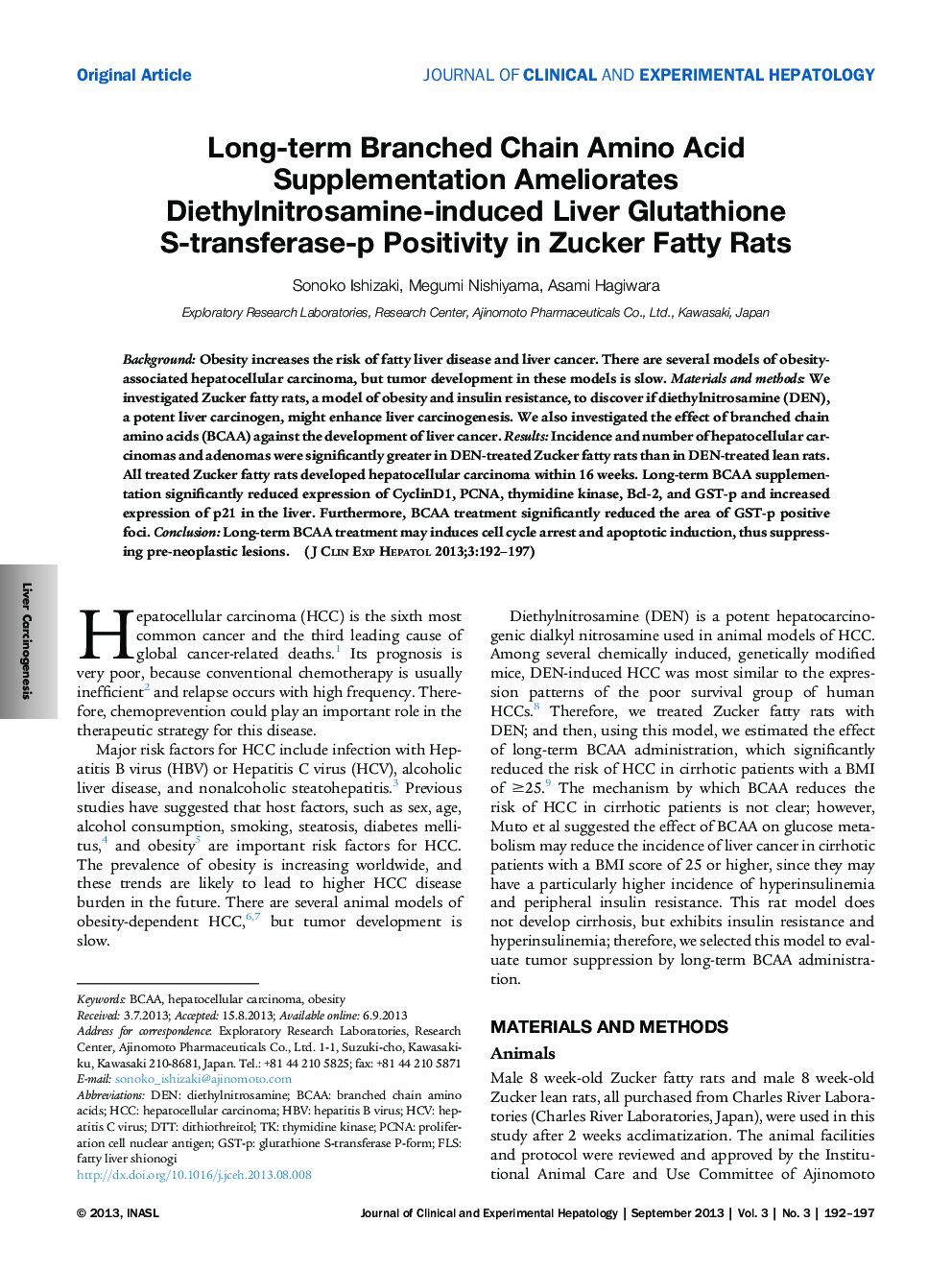| Article ID | Journal | Published Year | Pages | File Type |
|---|---|---|---|---|
| 3339128 | Journal of Clinical and Experimental Hepatology | 2013 | 6 Pages |
BackgroundObesity increases the risk of fatty liver disease and liver cancer. There are several models of obesity-associated hepatocellular carcinoma, but tumor development in these models is slow.Materials and methodsWe investigated Zucker fatty rats, a model of obesity and insulin resistance, to discover if diethylnitrosamine (DEN), a potent liver carcinogen, might enhance liver carcinogenesis. We also investigated the effect of branched chain amino acids (BCAA) against the development of liver cancer.ResultsIncidence and number of hepatocellular carcinomas and adenomas were significantly greater in DEN-treated Zucker fatty rats than in DEN-treated lean rats. All treated Zucker fatty rats developed hepatocellular carcinoma within 16 weeks. Long-term BCAA supplementation significantly reduced expression of CyclinD1, PCNA, thymidine kinase, Bcl-2, and GST-p and increased expression of p21 in the liver. Furthermore, BCAA treatment significantly reduced the area of GST-p positive foci.ConclusionLong-term BCAA treatment may induces cell cycle arrest and apoptotic induction, thus suppressing pre-neoplastic lesions.
